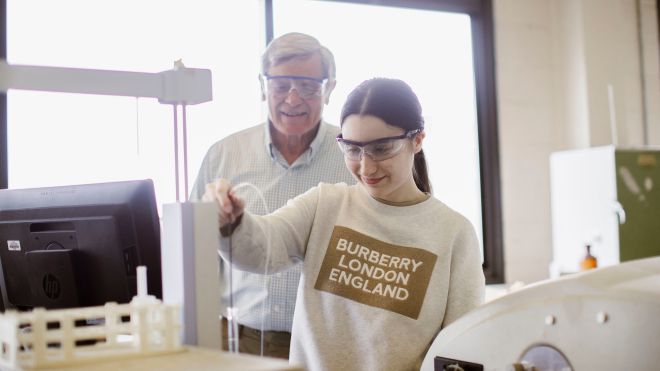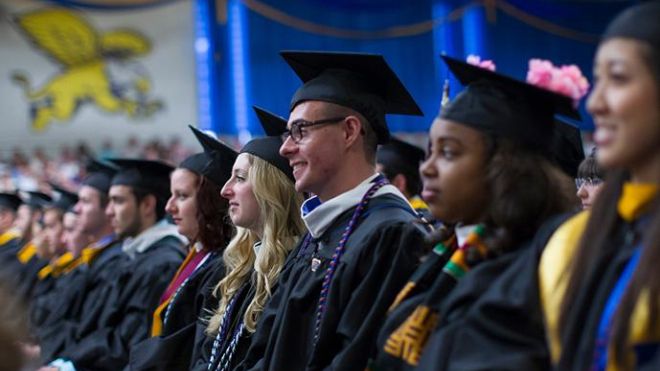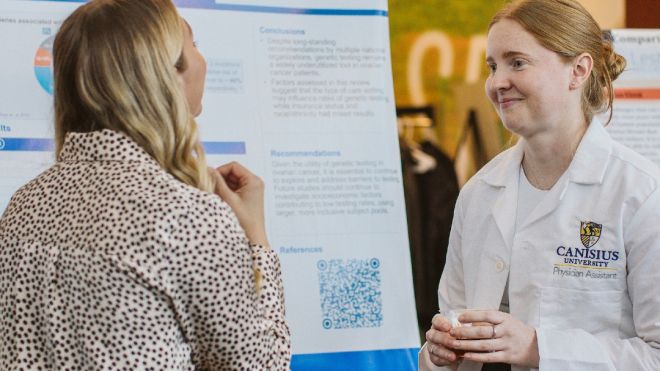Year after year, nine out of 10 Canisius students who apply are accepted into the medical or health professional schools of their choice. These outcomes speak to the strength of the college’s science and pre-medical programs, which start to nurture young doctors, scientists and health professionals well before they arrive at 2001 Main Street.
With support from local corporations and foundations, Canisius faculty offer innovative educational programs aimed at generating interest in the sciences among elementary, middle and high school students.
“The idea is to broaden students’ understanding of science and break down the perception that science is ‘too difficult,’” says Steven Szczepankiewicz, PhD, associate professor of chemistry.
Szczepankiewicz organizes the popular Canisius Summer Science Camp, alongside Phillip M. Sheridan, PhD, assistant professor of chemistry, with the combined support of The John R. Oishei Foundation and Time-Warner Cable. Open to children in grades five through eight, the science camp connects young investigators to different science concepts, with an emphasis on the ‘wow factor.’
“Above all, we want to teach kids that science can be fun,” adds Szczepankiewicz.
That’s also the objective behind the Western New York Chemistry Olympiad. Coordinated by Mariusz M. Kozik, PhD, chair of the Chemistry/Biochemistry Department, the annual competition tests high school students’ chemistry skills and knowledge. It is hosted by the Canisius Chemistry Department, and made possible by Honeywell International Inc. and David Nalewajek ’74, PhD. A senior principal scientist at Honeywell Research Laboratory, Nalewajek has helped facilitate more than $160,000 in grants for the Canisius Chemistry Department and the Olympiad, over 10 years.
“If we can spark the interest of just one or two students toward a career in chemistry, then we’ve done our job,” says Nalewajek.
Funding from corporate and foundation partners not only influences potential Canisius students, it also enhances the teaching and learning experiences of current students. A grant from The Margaret L. Wendt Foundation enables undergraduates in the Canisius Ambassadors for Conservation (CAC) program to collaborate with the Iroquois National Wildlife Refuge on school and summer camps for middle school children. CAC students share their knowledge about the natural world and promote wildlife conservation through a series of ecological lessons. To date, CAC students have educated more than 11,700 middle school children.
“We would not be able to offer these educational opportunities without the generous support of corporate and foundation sponsors,” says Michael Noonan, PhD, chair of animal behavior, ecology and conservation. “While an important secondary goal of our outreach activities is the recruitment of prospective students, the primary objective is to make science come alive for a new generation of young people.”



